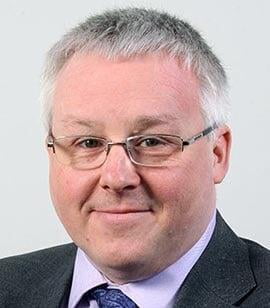The IDD comes into effect from 1st October 2018 and applies to all businesses involved in the insurance supply chain, which includes intermediary firms, product manufacturers and online distribution. In short, if you play a part in putting insurance in the hands of a consumer, the IDD is of relevance to you.
In the UK, the standards of insurance distribution set by the FCA have tended to exceed those on the continent, so impact here is not as significant. However, there are small changes in a number of areas that firms will need to address and in this blog, I outline five key changes.
- You need to ensure that the demands and needs statement or financial report is personalised to the client's specific needs and should also highlight any unmet needs A generic statement of demands and needs without some matching of an individual client’s needs to the product offered is therefore insufficient, although the FCA does not expect non-advised sales to go beyond the client's high-level demands and needs.
- There will be a requirement for 15 hours of continuing professional development for anyone directly involved in distributing insurance products – which means that whether you advise, arrange, paraplan or help manage claims or complaints in connection with insurance, you need to complete 15 hours of CPD a year (although this does not have to be structured CPD). Investment advisers are already used to fulfilling some level of CPD minimum requirement, and if you are a professional member with the CII for example, you already need to complete 35 hours. In this case therefore, you would just need to ensure that 15 hours of the 35 is insurance focussed. However, this may well mean that additional people within a firm are now required to log CPD who have never been required to before.
In respect of the insurance related CPD requirement, if you are an appointed representative, your network will gather this information from you but directly authorised firms will need to keep a central record of their own CPD progress - this would need to cover all affected staff and hold a rolling three years’ worth of records with a named member of staff responsible for maintaining these. - Where you operate a remuneration model that includes an incentive arrangement which rewards, at least in part, volumes of sales of insurance products, then this needs to be disclosed to the client. From a remuneration perspective, you must disclose the nature and the basis (fee, commission or combination etc.) of remuneration received under an insurance contract. All firms must disclose fees payable by a client in cash terms, or if it's not possible for an amount to be given, you must give a basis for the fee calculation. If you haven't already done so, you will need to make minor updates to your initial disclosure documents in terms of your non-investment insurance services.
- The IDD applies MiFID2 standards to insurance based investment products (IBIPs) which are not themselves MiFID investments. This means you will need to apply the ongoing cost disclosure and aggregation of charges processes to investment bonds as well as OIECS, unit trusts etc. - you may have to provide part year's figures from 1st October therefore to align with the annual review schedule for your clients, in the same way as you may have done for MiFID investments. You also have to issue a pre-sale suitability report for IBIPS - essentially, treat an investment bond like an OEIC from an ongoing cost disclosure and service perspective from 1st October.
- Although a personal pension that’s been written as a 'contract of insurance' doesn't fall under the definition of an IBIP, the pre-sale suitability report requirement applies as they are a 'life policy'. Ongoing cost disclosure in terms of pensions is also strongly recommended (where available) to meet the information needs of clients, in terms of their whole portfolio and maintaining a single consistent process, rather than leaving the client wondering why they got cost disclosure information on the rest of their investments but not their pensions!

